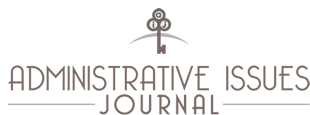
Abstract
Organizational effectiveness is a term without a single definition about the nonprofit community; it is difficult to define, much less measure, due to the wide disparity in that community. Inconsistency in the sector leads to an array of hypotheses in the literature addressing organizational effectiveness. Through a comprehensive examination of a single nonprofit organization, this qualitative case study examines the gap between the expectations of board performance by the nonprofit organization’s senior leadership and the board members’ self-perception of their governance role. The dominant self-perception of the board of directors is that their value as a governing entity is in their willingness to work hands-on in whatever volunteer roles are necessary to sustain the organization. Organizational governance is secondary to this self-characterization as a working board. This lack of focus on formal governance has resulted in a governing structure with minimal development, even as the organization itself continues to enjoy success. The case study of a single nonprofit entity suggests some recommendations for the practice of nonprofit governance in general as well as future research in the domain of nonprofit organizations that are either embryonic or have limited means available for the professional development of the board.
Recommended Citation
Aulgur, Jeffrey J.
(2016)
"Governance and Board Member Identity in an Emerging Nonprofit Organization,"
Administrative Issues Journal: Vol. 6:
Iss.
1, Article 5.
Available at:
https://dc.swosu.edu/aij/vol6/iss1/5
Included in
Health and Medical Administration Commons, Higher Education Administration Commons, Public Administration Commons
Please consider contributing an article to Administrative Issues Journal, our submission policy: http://www.swosu.edu/academics/aij/guidelines.aspx
